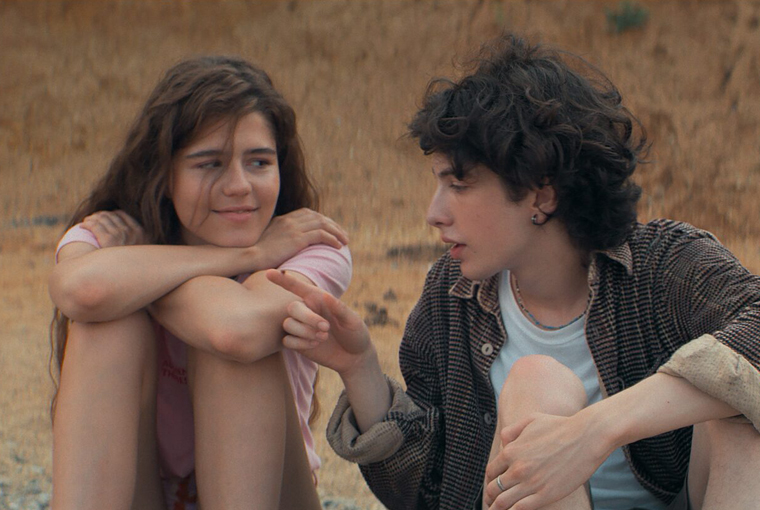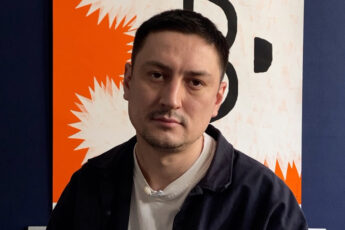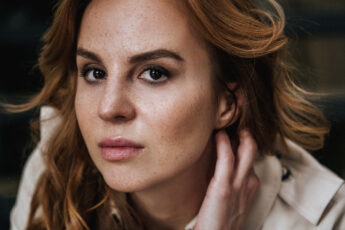Make Summer Last Forever
Yulia Trofimova’s The Land of Sasha (Strana Sascha, 2022)
Vol. 123 (March 2022) by Zoe Aiano
Much to the frustration of everyone around him, 17-year-old Sascha (Mark Eidelshtein) has just graduated from high school but has no intention of making any plans for his future. His mother Sophia (Evgeniia Gromova) and potential love interest Liza (Alisa Tarasenko) are united in their efforts to persuade him to enroll in university, while all Sascha really wants to do is draw and follow in the footsteps of his older friend Maks (Dmitry Endaltsev), a professional graffiti artist.
It is precisely when Sascha attempts to secure a paid painting gig in a child psychiatry office that he meets Zhenya (Maria Matsel), the Zendaya to his Timothee Chalamet. Like Sascha, Zhenya is also creatively inclined, but differs from him in that she has the wherewithal to direct it towards a potential career, namely fashion design. Along with other neuroses, she suffers from chronic shyness, but she feels comfortable approaching Sascha after she mistakenly assumes he is also at the clinic to receive therapy.
The two of them embark on a summer romance in which each tries to push the other one out of their comfort zone – Sascha by convincing Zhenya to climb a tower (which ends in a massive failure with the fire brigade being called to rescue her), while Zhenya urges Sascha to seriously consider studying art. Their idyllic bubble of young love is soon popped, however, when Zhenya finds out she’s been accepted for a degree in Moscow and Sascha reacts badly to being forced to face the future in any way other than passive procrastination.
The film addresses classic coming-of-age themes such as first love, deciding on a career and negotiating a shift in family dynamics with a light touch that ranges from moments of laugh-out-loud humor to drama and tension. With its soft color palette, dreamy summer aesthetics and general playfulness, the film is suitably cutesy without ever straying into patronizing or saccharine. Significant credit for this must go to the cast, especially the lead couple, who are convincingly charming and vulnerable at the same time.
Despite being conventional in many ways, The Land of Sasha also subtly breaks away from numerous representational clichés, but always keeps this on the background level without overburdening the characters or plot by making a clumsy point. In terms of gender norms, for example, Sascha is acknowledged as having a “feminine” side – most of his friends are girls and he’s interested in similar things to them. However, aside from a slight over interest in his sexual orientation on the part of the adults, this aspect is relegated to simply being a facet of his personality and not a point of discussion or conflict. Overall, he’s just a teenage boy – sometimes thoughtful and caring, sometimes a selfish asshole, almost always directionless.
In particular, Sophia is a very unusual mother figure. The most self-evident feature of this is her extreme youth, which borders on unconvincing (judging from the actors’ ages, she would have been 16 when she had him). This leaps out given the current cinematic context in Hollywood where filmmakers are apparently experiencing a mathematical crisis where everyone forgot how to calculate the age difference between actors playing mothers and sons (or else sexual education has regressed to the point where people don’t know at what ages women can have children). In this instance at least, she is acknowledged as being a young mother, even though while her tumultuous relationship with and subsequent break-up from Sascha’s father is kept mysterious, it isn’t really implied that she would have been a young teenager at the time. In any case, what is truly interesting about her is the fact that she’s just as flawed as her adolescent son, and sometimes more immature. She performs conventional maternal duties such as nagging and prying, but she also has temper tantrums of her own. She often overreacts, throwing Sascha out of the house when he betrays her by visiting his father and demonstrating a total lack of understanding about Zhenya’s mental health issues. While these are objectively examples of bad parenting, it is clear that she is also figuring things out and is fallible. At the same time, Sophia and Sascha are also shown to have an intimacy and friend-like quality to their relationship rarely seen in more traditional family set-ups.
The depiction of Russia itself also runs counter to contemporary filmic stereotype. On an architectural level, the standard gray concrete aesthetic gives way to a more generic pan-European appearance, with a mixture of old and modern, parks and graffiti-covered bridges. The beach and the sea in particular play a crucial role in first providing a typically romantic backdrop for the couple to fall in love and then a suitably moody place for them to sulk when it all falls apart. As such, while perfectly fitting the summer love framework, it creates an urban space that is less obviously Russian and helps to universalize the story. On the other hand, it may lean a little too far into over-idealizing, especially given that the exact location is never explicitly mentioned in the film, and while the synopsis describes it as taking place in Kaliningrad it looks suspiciously like Crimea (which is also the shooting location listed in IMDb).
Essentially, the moral of The Land of Sasha is that people have problems but they’ll figure them out and everything will be fine. In a time when everything feels very much like it won’t be fine at all, it’s comforting to spend some time in a world where people make mistakes but then correct them, and where if all else fails you can go and cry about it on the beach.




Leave a Comment